Aziz Haniffa
Economist Arvind Subramanian's new book, Eclipse: Living in the Shadow of China's Economic Dominance, defies the mainstream consensus of thinkers like Harvard's Joseph S Nye, Jr (author of The Future of Power) and Niall Ferguson that America's dominance is omnipotent vis-a-vis China.
It has so alarmed the powers that be, that he has been regularly invited to testify before Congressional committees and for private breakfasts with Senators to brief them on how to engage with Beijing.
Francis Fukuyama of Stanford University, who wrote The End of History, Last Man and The Origins of Political Order, noted, 'Defying conventional wisdom, Eclipse not just vividly imagines, but provides a plausible scenario for, the replacement of the United States by China as the world's dominant economic power... (it) persuasively underlines the need for Washington to get its act together.'
Liaquat Ahmed, Pulitzer Prize-winning author of Lords of Finance, says, "If you want to understand the true magnitude of the shift in economic power that is currently changing the world, Eclipse is the book to read."
For Rediff Realtime News on Global Economy, ...
Is US losing its economic power to China?
Dr Subramanian is currently a senior fellow at the Peterson Institute for International Economics and the Center for Global Development.
Before joining Peterson, he served at the International Monetary Fund and the General Agreement on Tariffs and Trade, and taught at Harvard's Kennedy School of Government and the Johns Hopkins School for Advanced International Studies.
He also briefed President Barack Obama before his visit to India in 2010 and advises the Indian government in different capacities, including as a member of the finance minister's expert group on the G-20.
Subramanian, who was selected by Foreign Policy magazine as one of its Top 100 Global Thinkers last month, spoke to India Abroad about why he has challenged the mainstream consensus on the US and China's power play.
...
Is US losing its economic power to China?
The title of your book speaks for itself. But has China's economic dominance over the United States become such a no-brainer?
In the US, as I say in my book, the central belief is still that yes, China is rising; yes, China is becoming powerful, but we are still the dominant power and if we do the right thing, it will be ours.
I am challenging that central belief. China is likely to become very dominant and that dominance is in China's hand to control, not that of the US.
...
Is US losing its economic power to China?
The scenario you paint in your introduction is ominous. What led you to paint the scenario where in February 2021, the newly inaugurated Republican president of the US is on his way to the office of the Chinese managing director of the IMF to sign an agreement under which the IMF will provide $3 trillion in emergency financing -- about 12 percent of the GDP -- to the US and the conditionality to which the US will have to adhere?
That scenario was inspired a bit by the 1956 Suez crisis. It's a combination of reading about history, about the Suez crisis and applying it to the current context.
Remember, a few months ago, the US was on the verge, threatening to default, with lots of nervousness about what might happen. The fiscal situation is not in very good state.
So, it seemed to me that history could repeat itself. In 1956, the UK needed foreign exchange very badly because of the Suez crisis and they invaded the Suez Canal. They got into trouble, they wanted money and the only place they could turn to was the IMF.
...
Is US losing its economic power to China?
But the US said we won't allow the IMF to give you money unless you withdraw from the Suez Canal.
So the US used its economic dominance to achieve political ends. It seemed to me that the roles were reversed, and now the US was in UK's position -- not actually, but potentially -- and the country on the other side is China because it's a big power, it controls the finance spigot. So, why couldn't that happen?
That's why I paint this exaggerated scenario, just to make the point that this is not out of the realm of possibility.
...
Is US losing its economic power to China?
Interestingly, Fareed Zakaria on his CNN Global Public Square programme also pointed out how China, with the resources it has today, could play the kind of role that the IMF is playing in terms of the European economies, which seem to be unraveling...
Something like that could happen in the future. China now has the choice. China could say to Europe, 'We'll give you money individually' or, it can say, 'We will put this money in the IMF and act collectively multilaterally.'
My view is that China should act multilaterally, strengthen the IMF and not do it bilaterally. But it's up to China to determine that.
The point is that either way, China has the means to determine that.
...
Is US losing its economic power to China?
Why do you feel that it's better for China to act multilaterally through the IMF? Won't China be able to call the shots more if it acts unilaterally, since it's virtually got Europe and the US on the ropes?
That's a very good point and it's true. The benefits are that it can leverage more that way. One cost is that it kind of exposes itself to the charge that it is getting enmeshed in domestic European politics.
That leads to the broader cost that if China wants to become and be seen as a positive force going forward and to use its power in a positive, constructive manner, it's always better to act together multilaterally.
It requires an act of enlightened self-interest. It can say, 'Oh, for my immediate narrow benefits, I can exert leverage,' or it can say, 'Look, what I really want is to preserve the multilateral system because that is the system that has been responsible for my growth over the last 30 years.'
China has depended on trade and an open multilateral system, and it has a broader self-interest in preserving that. In fact, that's one of the main points in my book -- that the world and China have an interest in strengthening the multilateral system.
...
Is US losing its economic power to China?
Hypothetically, if your scenario does begin to play out, is China better off pushing for structural reforms and conditionalities that the US should adhere to through the IMF rather than pushing the US to do this unilaterally, because the latter would be more embarrassing for a so-called superpower like the US?
China could try and do that, but the larger consequences of that would be adverse to China because it would seem and be seen as threatening rather than a welcoming presence.
If that were to happen, the US could say we close all our markets to you. You don't want to get into that retaliatory tit-for-tat situation. China needs to think much more broadly and strategically about this.
So, all of this necessarily calls for China in a sense to take on the mantle of a global leadership role...
It should, because it has the ability and power to do that. China can (then) legitimately say, in the IMF, for example, that if we do all this, we want the same amount of power that you have, and the world should be willing to give China that.
...
Is US losing its economic power to China?
At the moment, the US has a kind of de-facto veto power, China doesn't. Why should that be the case going forward? China can legitimately say, we will take on this global leadership role, we will provide more money, but in turn, we must be treated at least as much (in terms of clout as the European powers and the US).
The irony is this: The IMF is an institution where they used to say cheekily that IMF stood for Insolvents Must Fall. Now Europe is a potential insolvent. But instead of falling, it has veto power.
How appropriate is that? China can say that creditors have the power and, therefore, we should have as much power as you guys, who are now the potential borrowers. That kind of radical change needs to happen.
...
Is US losing its economic power to China?
Your book cover is the now almost iconic picture of President Barack Obama bowing to Chinese President Hu Jintao. Was this choice a deliberate attempt at symbolism?
This cover -- and I hope it's going to be good for my book sales -- encapsulates and captures the main theme of my book, and it seemed like a very appropriate thing to do.
Although in a sense, it's a bit unfair because President Obama was really trying to be courteous, not obsequious.
My wife is very unhappy (with the cover), particularly because President Obama invited me to brief him before he went to India and my wife said, 'It's a fine way for you to return the favor!' He's a very good and thoughtful leader, but one has to separate the personal from the professional.
...
Is US losing its economic power to China?
In your mind, has China already replaced the US as the pre-eminent economic power? Has a total eclipse occurred, or is there still some way the US can get its act together?
What I lean towards saying is that the game is almost over. When people ask is it already dominant or not, or they say I am exaggerating... I argue that it's already here, and, there are many manifestations of that.
The world wants China to change its policy, but it's unable to get China to do so. Now everyone is running to China and saying, 'Finance my bond.' So, China already has powers; you don't have to look to the future.
Today, China tells GE (General Electric), if you want to come into my market, you have to do a, b, c, d. China has already achieved dominance.
As long as China maintains a reasonable rate of growth -- I am not saying that China is going to grow very rapidly, I am saying it's going to slow down considerably... the dominance seems overwhelming...
The subtle point here is that I am projecting that the US will grow at about 2.5 percent, which is also already looking a bit optimistic every day.
Even say, it grows at 3.5 percent, the gap doesn't get filled because China can grow at 9 percent or it can grow at 5 or 4 percent, but that is China's to control and as long as China does post a reasonable amount, the difference in the US will be such that the dominance will get even more reinforced.
...
Is US losing its economic power to China?
And even if the US gets its act together, which, as leading economists and analysts believe, will still mean a good five to 10 years for the US to be level with China...
I am being conservative or rather optimistic by saying the US will do well. But most analysts believe for the next five to 10 years it's going to be very difficult.
Besides the fiscal situation and the weak growth prospects, the US has a much bigger third problem, which I talk about in my book and which people don't mention enough. It is what is called the beleaguered middle-class problem.
This combines a number of pathologies. Median income has stagnated -- in fact, it has declined. Social and economic mobility have also declined. Poverty has increased.
...
Is US losing its economic power to China?
Opportunities for the middle class by moving up the skills spectrum are also questionable because the education system is falling behind and there is more competition from India and China even at the upper end of this spectrum.
So, the middle class is caught in the headlights and doesn't know which way to go... And it is not at all clear what and how much the US has to do to overcome that.
Now remember, that is the American Dream -- the opportunities for a large number of people. If that gets taken away, the American model is in trouble.
So, it's a combination of this growth, fiscal and this structural middle class problem, which is crucial in creating this weakness and conversely creating strength for China.
...
Is US losing its economic power to China?
Right at the outset you say you are challenging the predictions of mainstream economists and political scientists that while the US may be in trouble economically, there's no way its dominance will be displaced. How do you feel about taking them on?
Someone had to take them on, right? I am a big believer that the world has a strong interest in a strong US. The US has been a force for good and we need a strong US because in the event that China could assert itself in not very positive ways, we need a counterweight.
Challenging these mainstream arguments is also a way of providing a wake-up call.
My message is going to be that the world needs a strong US; the US cannot afford to be complacent or diffident or weak in its response to its challenges. It has to act quickly and forcefully.
...
Is US losing its economic power to China?
Speaking of a counterweight, there is a strong opinion among some analysts, particularly the neo-conservatives, that India would be a good fit in terms of being a counterweight to China...
What I would say is that the world needs to tether China to the multilateral system, so that it remains a force for good. Now, what that means is that it provides an opportunity for the larger economic and trading nations -- the US, India, Brazil, Europe -- to come together and strengthen the multilateral system so that everyone deals with each other multilaterally.
So, it's not about having India as a counterweight to China, but it's about forging a broader coalition that has similar concerns, similar interests, vis-a-vis China and makes China part of this multilateral effort.
That's the way to do it, not by countries saying we'll do it either bilaterally or by tactically using counterweights, which will be counterproductive. It will not be effective vis-a-vis China because China is too strong and powerful.
...
Is US losing its economic power to China?
Some of your critics have accused you of overstating China's leverage because of the debt it holds with the US and its growing global economic forays. They ask what China would do without the US markets and point to examples like when a drop in US consumer demand resulted in the closure of some Chinese factories that almost sparked riots. How would you counter these arguments?
That's why trade is a kind of system of mutual dependence. It's not a one-way flow. The US continues to be the biggest market and you are absolutely right that if the US market collapses and if the US says it will erect barriers, there will be problems. China is aware of that, and that's the reason for saying that we need to keep the system open.
That being said, remember that when China has followed this exchange rate policy, think of why the US has not been able to change that. (Senators) Schumer-Graham (legislation) in 2006 wanted to impose tariffs because of the Chinese exchange rate, but it didn't happen.
Last year again, they did something in Congress but it was very weak like many other efforts... Why is that the case? Because American firms are now so dependent on contracts in China that in Congress they say no to taking any action against China.
China has, by its economic power, created such a stake for American firms in the Chinese market that they don't want to speak up. So, the political process has been neutered.
...
Is US losing its economic power to China?
GE Chairman and CEO Jeff Immelt was recently on Zakaria's programme. Despite being the President's job czar and head of the President's Council on Innovation, he strongly defended outsourcing to China and even building plants there creating massive job generation. He argued that this was the only way for US companies to stay competitive. It's ironic coming from the President's job czar, but is this a valid argument?
It's true that for the US, it's very important to be at the technological frontier and, therefore, if it requires getting the cheapest inputs -- off-shoring, outsourcing -- that has to happen.
In order for that to be politically sustainable for the US, there has to be domestic mechanisms to cope with some of the downsides of that, because when off-shoring happens, there are employment losses, wage declines... That's why the US domestic safety net has to be considerably strengthened -- more education, more training, more unemployment insurance.
...
Is US losing its economic power to China?
Do you see China eclipsing the US in innovation or will Beijing always be replicating, or in some cases through piracy, keep helping itself to American innovation?
That's probably the last frontier where China will eclipse the US. It will take a lot of time for China to eclipse the US in this area, but I have two reactions to your question.
One, some of that is happening -- not eclipsing -- but China is building up its R & D capability. If you look at China's scientific manpower -- the number of PhD students, the number of articles by Chinese -- that's growing steadily. You also see some amount of US firms trying to develop R & D in China.
The other reaction I would have is that in some ways, while it is important to be at the technological frontier to be a dominant power, in today's world it doesn't matter who does the technological innovation as long as you are able to use it and absorb it and disseminate it. You get the benefits regardless.
...
Is US losing its economic power to China?
It's become quite politically expedient these days for politicians to engage in China-bashing, but can the US contemplate a trade war with China, considering that Beijing holds US debt and is all of this political posturing in this election season?
This comes back to our discussion about who has the relative balance of power and for the reasons I explained, the US no longer has the balance of power. So, even if they threaten, they will not be able to implement it because as I said, American firms will not support it because they are too scared of retaliatory action by China.
So, that game is kind of over where the US can threaten to take action against China -- that's the eclipse that has taken over.
The US simply cannot be tough and take such action because the domestic political process, particularly the very powerful corporations will not allow that to happen. They will not support such action because they are already in China's pockets.
...
Is US losing its economic power to China?
Where does India figure in these changing dynamics?
The view is that India's turn will come, but it will come after 15, 20 years. So, over the next 15, 20 years, it will be China's to rule, but then India will catch up and China will slow down by definition.
The difference, however, is that will India ever have the incentive or ability as a state to project power internationally? That to me is an uncertainty, because India has been a weak state -- it's very decentralised.
Remember when Dr Manmohan Singh went to Bangladesh, Mamata Banerjee refused to go with him. India doesn't have this ability to project power.
So, India will become prosperous and will catch up with China, although again it will be bumpy, but whether fundamentally India will be able to be a dominant power like China or the United States, I really doubt it. That's what some people in India say -- there may be something about India that makes it fundamentally incapable of projecting power internationally.
...
Is US losing its economic power to China?
When you say India will ultimately catch up, what do you really mean?
In terms of political transformation, India is ahead of China. India has to catch up socially and economically. The economic catch up is already beginning to happen and that process will continue.



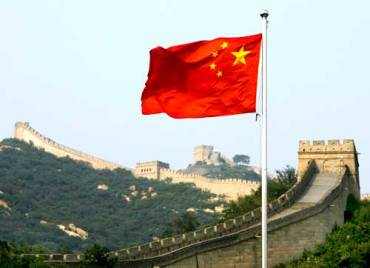


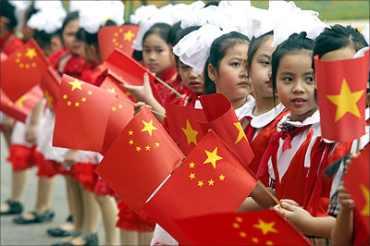
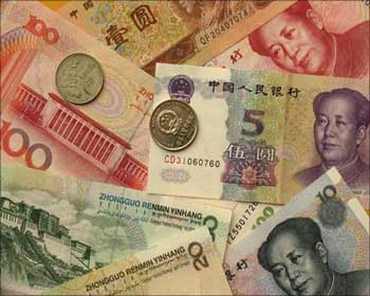

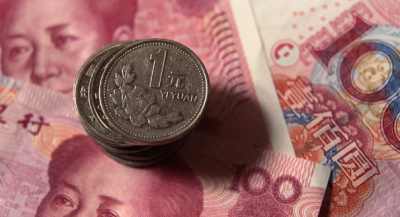
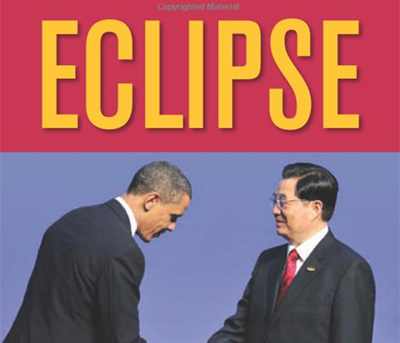
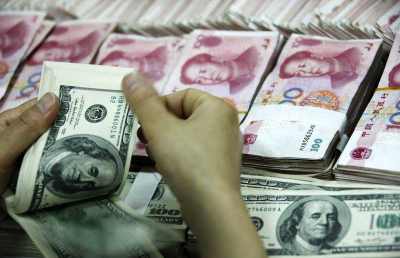


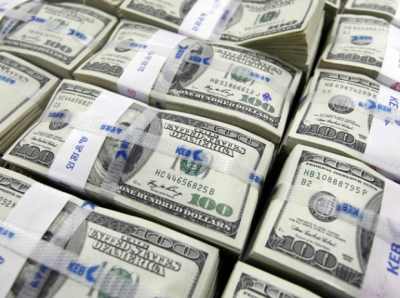






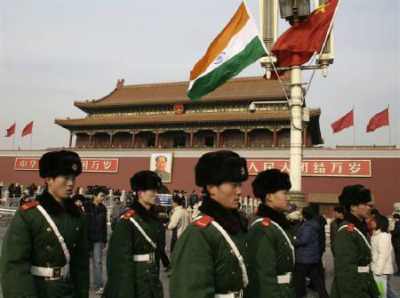
article